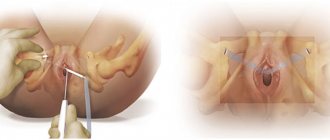(Be the first to vote!)
5589564
06/01/2021 owner reviews
Our cats' urine smells like ammonia. The ammonia in cat urine has a disgusting, unpleasant odor and lasts for quite a long time. As an indoor cat parent, you're probably worried about how strong the smell of her urine is. This is fine? Or should you be worried? Let's find out.
- Composition of cat urine
- What Can Cause Strong Urine Odor?
- What to do to remove strong urine odor
Types of bad smelling urine
Urine is considered one of the important indicators of pet health. Showing its color and smell directly indicate latent diseases and allows you to make a timely visit to the veterinary clinic for a full diagnostic examination.
The smell of ammonia from urine is very strong and cannot be ignored.
Strong and unnatural aromas are impossible to miss. In a healthy pet, the urine is almost transparent with a slight yellowish tint and a surface admixture of ammonia. The changes that may occur may be related to:
- with physiological processes. A change in diet, moving, and severe fright can be a source of unpleasant odors. For some animals, it is enough to change their usual diet, increase the volume of fluid they receive, and not leave them alone for a long time, so that the clinical signs of the abnormality spontaneously disappear;
- with pathological problems. Diseases that occur unnoticed after some time manifest themselves with severe symptoms. The pet becomes nervous and tries to hide or attract attention.
Important! If for physiological types of deviations treatment is not required for animals, then for pathological ones any delay can cost them their lives. Do not delay visiting the veterinarian or try to self-medicate.
Types of urine smell
Strong urine odor due to natural causes
Why does my dog's breath smell like rotten meat?
Why does my cat's urine stink? The problem is related to physiological processes that do not have a serious effect on his body. Experts believe that severe stressful situations can change metabolic processes. Moving, meeting relatives or dogs while walking, or being ignored by the owner can be the root cause for a change in the aroma of urine. After the stress disappears, the condition returns to normal on its own without outside help.
Important! If clinical manifestations do not go away within 2 weeks, then the animal needs the help of a specialist.
Poor nutrition
A cat may develop smelly urine if the menu is incorrectly selected. Common errors include high protein content, which provokes disturbances in protein metabolism in the body, which causes an increase in the level of ammonia derivatives in the urine.
The deviation is detected in pets that are constantly fed chicken and fish. Protein elements from them are absorbed by the body by 80%. Changing your usual diet and adding dairy products, vegetables and cereals to it helps regulate the functionality of internal organs and get rid of repulsive odors emanating from the cat's litter box.
Note! Deviations can be caused by cheap dry food, consisting of by-products and completely unbalanced. If the animal is simultaneously limited in water, the ammonia smell will be even stronger.
Poor diet is a sign of bad urine odor
Lack of fluid (dehydration)
The next factor that causes a cat’s urine to smell strongly of acetone is the high concentration of urea (a derivative of ammonia). The indicators are directly related to the volume of liquid consumed by the pet. The solution to the problem is to provide free access to clean drinking water.
Puberty
A cat's urine smells like ammonia during the period of sexual heat and physiological maturation. In males the process is more pronounced compared to females. Specific aromas are associated with the secretion of the gonads.
For your information! The generally accepted misconception that if you castrate an animal, the issue will be resolved, there is no justification. Many owners of furry pets note that surgery has not changed anything except their character. Severe fearfulness or aggression does not affect the ammonia fumes spreading throughout the house from the cat's litter box.
Signs of heat
Causes
Normally, the smell of cat urine is quite pungent and at the same time specific. Its peculiarity is due to the presence of secretions from the sex glands and ammonia compounds, which provide the physiological fluid with an ammonia smell with special additions. If the animal’s condition changes, then the urine smells unusual. There are many main reasons for changes in the smell of urine in cats .
- Dehydration . If the animal’s body does not receive enough water, then the concentration of ammonia in the urine increases, causing its smell to become very pungent, and the cat stinks of urine. The same phenomenon is observed when feeding a pet dry food, which causes persistent chronic dehydration. The problem is eliminated by providing the animal with a sufficient volume of fluid. If necessary, in severe cases, when the urine has a strong smell and after the cause of dehydration and the cat has constant access to water, infusions of saline are carried out. After fluid balance is restored, urine smells normal;
- The period of puberty and the period of heat is one existing non-pathological factor that increases the harshness of the cat's odor. For this reason, both cats and cats change the smell of urine. The smell of cat urine begins to become pronounced due to increased activity of the sex glands. During such periods, urine is a means by which the animal can mark the territory with a strong and persistent odor and declare its readiness to mate, and this signal spreads over a considerable distance. If you castrate or neuter a cat, the urine loses its odor to a significant extent.
- Wrong diet . If a cat is not fed correctly, then it has a protein metabolism disorder, which causes the level of ammonia in the urine to jump sharply. For this reason, urine can have a strong odor, and even high-quality litters cannot completely cover it up. To eliminate the problem, the animal's diet is changed. Also, if the veterinarian deems it necessary, a course of treatment of the liver and kidneys is indicated to restore their normal functioning, which may be impaired due to an excess of protein in the feed.
- Diseases of the urinary system . All diseases of the kidneys, bladder and urethra are accompanied by the development of an inflammatory process in them. In such a situation, there is a violation of urine flow, due to which it constantly accumulates and stagnates in the animal’s body. In addition to the concentration of urea in the urine, stagnation also causes the proliferation of pathogenic bacteria. As a result, the urine smells not only particularly foul, but also unusual. To eliminate the problem, urgent and high-quality treatment is required, which includes a course of antibiotics.
- Hormonal diseases and cancer pathologies . In such a situation, the cat’s urine smells especially unpleasant due to the pathological processes occurring in the animal’s body. In some cases, the urine begins to smell not just strongly, but also putrid, which should especially alert the owner. Sometimes such changes in the smell of urine are the only signs of disorders occurring in the animal’s body.
- Severe stress . If an animal is going through serious changes, such as moving, for example, its urine smells much stronger at this time due to a sharp disruption in metabolic processes. In such a situation, as soon as the cat calms down, the problem will go away on its own. A visit to the veterinarian is only necessary if after 2 weeks your cat's urine still stinks.
In order not to miss the appearance of problems in the health of the animal, it is important to promptly identify the causes of changes in the smell of urine. You should not refuse a visit, assuming that the alarm may be false. It’s better to visit the veterinarian and hear that the cat is healthy than to find out that your furry pet has a disease, but it’s dangerous to miss it.
When, in the absence of diseases in the pet, an ammonia smell is felt in the apartment, first of all, you need to start cleaning the cat litter more often, then try to choose a litter that better absorbs odors, and, finally, consider the issue of possible castration of the cat. Usually the problem is successfully resolved within a month.
If your cat's urine smells like ammonia, this may be a sign of a serious inflammatory disease or hormonal imbalance. You should not ignore this problem and try to fix it yourself. To make an accurate diagnosis, it is enough to take blood and urine tests of the kitten. Therapy for disorders includes medication and a balanced therapeutic diet.
[custom_ads_shortcode1]
How to get rid of unpleasant urine odor
If your cat constantly smells of urine, then the issue is non-compliance with hygiene standards. First of all, you need to promptly clean its potty, rinsing it with disinfectants, and pay attention to whether the pet lies in its own excrement. This problem is observed in animals with long hair or behavioral disorders (fear of punishment for using foreign places as a toilet).
Diet adjustments
Urinary incontinence in a cat: what to do at home
Changes in routine can reduce off-putting aromas. When selecting food, preference is given to high-quality food at the premium and super-premium levels, for holistic people.
Important! The owner should not forget that attempts to mix a commercial diet with natural additives will lead to complex diseases of the pet’s gastrointestinal tract.
When feeding self-prepared food, you need to normalize protein metabolism and reduce the amount of:
- chicken;
- raw meat;
- offal;
- fish.
Protein mononutrition provokes kidney and liver dysfunction. Add to the diet:
- vegetable crops - cabbage, carrots, zucchini;
- cereals - rice, buckwheat, oatmeal;
- fermented milk products - cottage cheese, kefir, yogurt and low-fat cream.
Important! It is strictly forbidden to feed the kitten from the table. Sausage, canned food, pasta and soups cause significant harm to the health of four-legged animals.
Super premium food
Smell of acetone in cat urine
In addition to acetone halitosis, if metabolic processes in the body are disrupted, the smell of acetone from urine may be observed. Not paying attention to such changes is a direct path to the development of serious complications in the animal’s body.
If the smell of acetone appears in a cat’s urine, it is recommended to contact a veterinary hospital for help, which will allow for a thorough clinical examination and diagnostic measures.
Based on the test results obtained, the veterinarian will be able to identify or exclude pathological changes in the renal system.
If there are problems with the timely excretion of urine, diseases of the lower parts of the urinary tract are most often diagnosed. Lack of timely assistance can cause death.
In addition to the appearance of a specific odor of acetone from a cat’s urine, there are a number of signs indicating the development of a urological syndrome or diseases of the lower part of the urinary system. The cat may show increased attention to the area of the urethral opening, and more often experiences the urge to urinate. The excreted portion of urine may be small, mixed with blood.
Before prescribing treatment, the doctor must find out what triggered the development of the pathology. Problems that provoke the development of urethral syndrome are as follows:
- urolithiasis (the presence of sand and stones in the bladder);
- inflammatory processes in the bladder;
- a collection of sediment from urine called a urethral plug;
- congenital anomalies;
- diseases localized in the spinal cord;
- tumor processes affecting the urinary system;
- increased water consumption by the cat and weak bladder walls, which leads to incontinence.
Pathologies of the urinary system and, as a consequence, the appearance of the smell of acetone, can be provoked by diseases of the endocrine system. Overactivity of the thyroid gland or disturbances in the functioning of the pancreas lead to systemic failures, affecting the kidney area.
In veterinary practice, doctors see cats with diseases of the urinary system that have reached the age of 4 years and older. Males more often suffer from blockages of the urethral canal due to anatomical features.
Problems with the process of urine excretion and changes in its characteristics often arise. The disease may be accompanied by problems with the process of urine excretion itself, as well as the release of blood fractions, which indicates damage to the mucous membranes of the canal.
Signs of lesions in the lower urinary system in a cat are:
- painful sensations in the animal when trying to urinate in the tray (the animal screams from the pain experienced);
- frequent visits are not productive visits to the cat litter box;
- the cat staying in the litter box for a long time or, on the contrary, the pet refusing to go to the right place (the pet begins to crap in the most unexpected places, even if it had been regularly going to the litter box before);
- the appearance of a characteristic odor of acetone from urine;
- depressed state of the animal, drowsiness.
During therapeutic measures, the specialist prescribes a course of antimicrobial drugs and also gives recommendations on adjusting the diet. It is definitely recommended to provide more drinking water.
In some cases, the doctor recommends surgery to remove stones from the urinary tract, as well as diagnosed tumors. When carrying out therapeutic measures, veterinarians install a urinary catheter.
If the aroma appeared after castration
A cat has a wet nose: why is it cold and what does it mean?
Why doesn't my cat's urine stop smelling? Surgery does not guarantee the disappearance of unpleasant odors. The animal needs to change its usual diet and increase fluid volumes. If this approach does not produce results, then the owner will have to pay a visit to the veterinary clinic and undergo a full examination with the pet.
The appearance of repulsive aromas after castration is associated with hormonal imbalance or a hidden inflammatory process. Self-medication will not eliminate the problem, but can only worsen the condition. The clinic will offer blood and urine tests; based on the diagnostics, a diagnosis will be made and appropriate therapy will be prescribed.
Reasons why urine starts to smell unusual
Pathological changes in the body cause a variety of clinical signs. Individual hormonal imbalances and cancerous lesions lead to the appearance of a secondary putrid odor, which cannot but alert the owner. In some cases, only changes in urine are extraneous manifestations indicating the active development of diseases.
Note! Cats are susceptible to endocrine diseases just like humans. Disorders of the thyroid gland or diabetes mellitus provoke the appearance of a sweetish odor emanating from the pet.
Hyperthyroidism in a cat
Kidney diseases
Pathological processes in the urinary department do not end with inflammation of the kidneys. The list includes bacterial infections of the bladder and urethral canal. The process is determined by disturbances in the excretion of urine; against the background of an increase in the concentration of urea in the body, the active reproduction of pathogenic microorganisms begins.
Important! Fetid aromas require a full diagnosis and subsequent treatment with a course of antibiotics.
Why does a cat smell of acetone?
The unpleasant odor of acetone from a cat’s mouth develops as a result of the accumulation of ketone bodies, which are an intermediate link in the process of protein, carbohydrate and lipid metabolism. Ketone bodies are formed as a result of an oxidation process involving lipid components.
The resulting acetone begins to penetrate the systemic bloodstream, gradually spreading throughout all organs, settling mainly in the cellular structures of the liver and kidneys. Ketone bodies, combined to form acetone, are released along with the air that the animal exhales during gas exchange from the lungs.
The kidneys excrete ketone bodies in the form of acetone along with a portion of urine. In this regard, the specific smell of acetone appears not only from the cat’s mouth, but also at the time of urination.
The appearance of an acetone odor from a cat’s mouth is primarily based on problems in the functioning of metabolic processes that arise against the background of systemic diseases. There is no need to panic, especially when it comes to small kittens. The appearance of the characteristic odor of acetone in a small kitten from the mucous membranes lining the oral cavity can be triggered by basic disturbances in the diet.
Factors influencing the acetone odor emerging from the mouth are:
- Diet problems. A lack of useful nutrients and an excess of the wrong nutrients in the diet leads to all sorts of pathologies, accompanied by metabolic disorders. The smell of acetone from the cat’s mouth can occur during prolonged fasting. The specific odor of acetone arises from the mouths of those animals that eat mainly carbohydrates. In addition to halitosis, if the diet is violated, the animal’s body undergoes serious changes.
- Infectious pathologies. Inflammatory processes that develop as a result of the penetration and development of pathogens are often accompanied by an increase in body temperature and acetone halitosis.
- Malignant neoplasms. Tumors developing anywhere in the body provoke disturbances in the functioning of the entire harmonious system, one of the signs of which is the development of acetone-type halitosis. Acetone circulating in the bloodstream is provoked by pathologies in the central nervous system (brain damage), tumors localized in the gastrointestinal tract.
- Functional disorders in the endocrine system. Pathological changes in the thyroid gland lead to increased production of hormonal substances. As soon as the level of hormones exceeds normal levels, hyperfunction occurs, against the background of which metabolism increases. Stressful conditions in a cat that occur during pregnancy, as well as after undergoing surgical procedures, can provoke changes in hormonal levels. The pet suffers from increased weakness, hyperthermia appears, the cat looks sleepy and depressed, prefers to lie down more.
Accompanying symptoms
A sick animal begins to show anxiety long before the appearance of pronounced clinical symptoms. The pet diligently licks the area of the urethra, and is haunted by a regular urge to empty the bladder. The result of these attempts is the release of small volumes of cloudy liquid with a pronounced ammonia aroma.
Secondary symptoms include:
- overheating condition. The pet begins to breathe with its mouth open, trying to stabilize its body temperature;
- dry nose, hot ears and changes in the appearance of mucous membranes. The anomaly reports dehydration;
- anxiety, dilated pupils, attempts to rub against various objects, screaming. Increased activity at night and attempts to escape outside indicate the onset of sexual desire and a sharp release of hormones;
- problems with bowel movements, obesity, lethargy, untidiness and bad breath. Signs indicate an incorrectly selected diet;
- pain and stinging when urinating, excretion of urine by drip, frequent trips to the litter box, constant thirst, inflammatory processes in the external genital organs, loss of appetite and apathy. Renal pathologies and lesions of the urinary tract appear;
- constant thirst, weight gain or loss. Symptoms accompany endocrine pathologies;
- nausea, vomiting, changes in behavior. The signs reveal the development of oncological tumors.
Important! Stressful situations provoke attempts to escape, hide in a secluded place (under the bed, behind a closet or sofa). Animals experience involuntary trembling, attempts to curl up into a ball, and dilated eyes. If unusual manifestations are detected, the animal should be shown to a doctor.
Symptoms of genitourinary diseases
Actions to take if a symptom is detected
Experts recommend not to self-medicate on the advice of experienced friends or articles from the Internet. Without a full diagnostic examination, it is almost impossible to determine the source of the problem, and attempts to give a pet a completely inappropriate drug can end sadly, ranging from banal poisoning to failure of vital organs.
A visit to the veterinarian is extremely important in any case.
Visit to the doctor
After detecting unpleasant signs, the owner must call the veterinary clinic and schedule an appointment with the veterinarian. At the appointment, the specialist will ask in detail about the manifestations of the disease:
- frequency of visits to the tray;
- unreasonable restless behavior;
- problems with urination;
- refusal to eat;
- apathetic state and general lethargy.
After examining the animal and palpation examination, the veterinarian will write out a referral for urine and blood tests, and if serious pathologies are suspected, for an ultrasound or x-ray.
Note! In order not to waste time, before going to the hospital, you can collect urine and feces in containers and come to the appointment with them. In some cases, this will help save the life of a pet with kidney failure or other serious illness.
The doctor may prescribe an ultrasound for your pet.
Prevention of the problem
Preventive actions:
- normalization of nutrition. Low-quality feed and attempts to feed table scraps should be avoided;
- free access to drinking water. The animal should not have problems quenching its thirst;
- eliminating stress. The pet should not be left alone for a long time; when moving, you should not put its basket in your luggage;
- Get checked by a veterinarian promptly. An annual visit will reduce the risk of latent disease;
- Once a course of therapy has been prescribed, it is strictly prohibited to stop treating the cat. Pathology can develop into damage to internal organs.
Constant monitoring of the behavior and general condition of four-legged animals will help to promptly identify an onset of illness or correct deficiencies in care. Fresh water, balanced food, vitamin therapy and vaccinations increase the chances of a quiet life without regular infections or problems with the functioning of internal organs.
If there is a strong aroma of ammonia in the apartment after leaving your pet, then you should think about the source of its appearance. Using secondary signs, you can determine the cause of the deviation and, if it is related to physiological characteristics, remove the factors that provoke it. In other cases, the only solution to the problem will be a visit to a veterinary clinic, where treatment will be prescribed.
Prevention
To maintain health, it is important to follow the correct diet: protein foods should be combined with carbohydrates. The cat should always have access to water, especially in the hot season. It is advisable to monitor the cat’s behavior and notice the slightest changes in its character.
This will help to detect the development of the disease in time. It is also worth protecting the animal from stress: do not leave your pet alone or with strangers for a long time, carefully transport it from place to place. If your cat's urine smells strongly, you should immediately contact a veterinarian.
[custom_ads_shortcode3]











